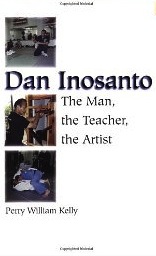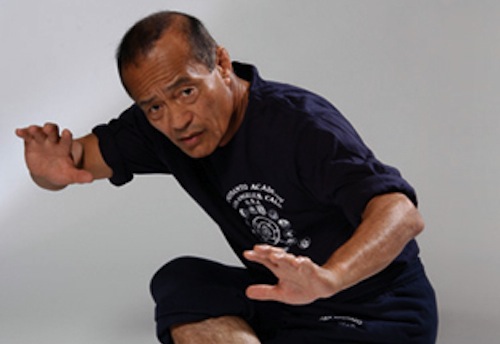

Martial arts may seem, to the uninitiated, like the province of action movies and people who relish physical combat. But to more discerning seekers, it is also a path toward greater self-enlightenment and a more harmonious relationship with the world.
Perry William Kelly’s biography, Dan Inosanto: The Man, the Teacher, the Artist, paints an illuminating picture of a revered practitioner and legendary teacher of the martial arts. Inosanto, Bruce Lee’s best friend and training partner and the world’s leading authority on Jeet Kune Do, the integrative system of martial arts that Bruce Lee created, began studying martial arts after he was beaten up by a bully as a child. Inosanto, now 76, has spent a lifetime studying dozens of martial arts with masters in the United States, Southeast Asia, and Europe. He has mastered numerous arts and is the author of several books, including Jeet Kune Do: The Art and Philosophy of Bruce Lee and Absorb What Is Useful. At his school in Marina del Rey, California, and in workshops throughout the world, he has taught many notable practitioners the martial arts of Jun Fan Gung fu, Jeet Kune Do, Kali, grappling, Muay Thai, and silat.
What shines through in Kelly’s biography is that Inosanto inspires his students with his character, as well as with his vast knowledge and rarefied skill.
He is known for his humility, loyalty, and generosity, in addition to his hard work and dedication. Having taken two weekend workshops with Inosanto and studied with students of his, I found him to be a seeker of wisdom who embodies what he knows.
Before one of his workshops, I told Dan, “I am trying to do in therapy what you and Bruce Lee did in the martial arts: integrate the best from a variety of sources. What principles did you two use so that your integration is not a mishmash?”
“Research your own experience. Absorb what is useful, reject what is useless, and add what is specifically your own,” he replied. Those words have influenced so much of my philosophy and way of practicing psychotherapy. Kelly’s book offers an additional insight: “capture the essence.” In other words, anyone attempting to integrate disparate things needs to focus on the heart and soul of each one, rather than tangential elements.
When reading Kelly’s book I could also see that Dan Inosanto is clearly driven—by love of the martial arts and teaching, and perhaps by fear based on the trauma of having been bullied. He admits that there has been a cost, as well as a benefit, to his single-minded devotion to excellence. In Kelly’s candid interview with Inosanto’s eldest daughter, she suggests that her dad, who had an enormously positive impact on her, did not spend as much time with his family as he might have. Inosanto himself suggests that human beings need to try to create a balance between ambition and relationships.
One of the tricks to flourishing is to make your avocation your vocation—to get paid for what you love and would do for free. “Choose a job you love and you will never have to work a day in your life,” as Cicero knew. As Perry William Kelly’s fine biography makes evident, Dan Inosanto has a great deal to teach us outside the martial arts studio, as well as on the mat.




3 Comments
Kim P.
Great advice. Thank you for sharing!
Michelle Moore
What a brilliant philosophy, “Choose a job you love and you will never have to work a day in your life”.
Perry William Kelly
Mr. Rubin: Thank you for your kind words about the biography I wrote on Guro Dan. They are much appreciated. Best wishes for 2015. Sincerely, Perry William Kelly